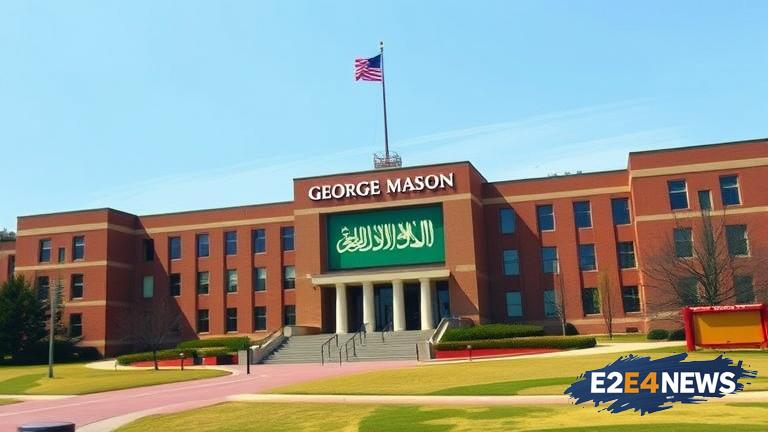George Mason University, a public research university in Virginia, has been at the center of a controversy surrounding its alleged ties to Saudi Arabia. The university has denied engaging in a $1.3 million contract with a Saudi Arabian university, which has sparked debate over academic integrity and foreign influence. The contract in question was reportedly for a research project, but the university claims that it was never finalized. Despite this, many are questioning the university’s judgment and transparency in its dealings with foreign entities. The controversy has also raised concerns about the potential for foreign governments to exert influence over American universities. Some have pointed out that Saudi Arabia has a history of human rights abuses and that American universities should be cautious in their dealings with the country. Others have argued that academic collaboration and exchange are essential for advancing knowledge and understanding, and that universities should not be discouraged from engaging with foreign partners. However, the issue is complex, and many factors need to be considered, including the potential risks and benefits of such collaborations. The university’s denial of the contract has done little to quell the controversy, with many calling for greater transparency and accountability in its dealings with foreign entities. The incident has also sparked a broader debate about the role of foreign influence in American higher education, and the need for universities to be mindful of their relationships with foreign governments and entities. As the controversy continues to unfold, it remains to be seen how George Mason University will respond to the criticism and concerns that have been raised. The university’s reputation and integrity are at stake, and it will be important for the administration to address the concerns of the public and the academic community. The incident has also highlighted the need for greater transparency and accountability in the dealings of American universities with foreign entities, and the importance of protecting academic integrity and independence. Furthermore, the controversy has raised questions about the potential for foreign governments to use academic collaborations as a means of exerting influence over American universities and shaping their research agendas. The incident has also sparked concerns about the potential for conflicts of interest and the need for universities to be mindful of their relationships with foreign governments and entities. In addition, the controversy has highlighted the importance of academic freedom and the need for universities to protect the independence and autonomy of their faculty and researchers. The incident has also raised questions about the role of government funding and support in shaping the research agendas of American universities, and the potential for foreign governments to use funding as a means of exerting influence over American universities.





